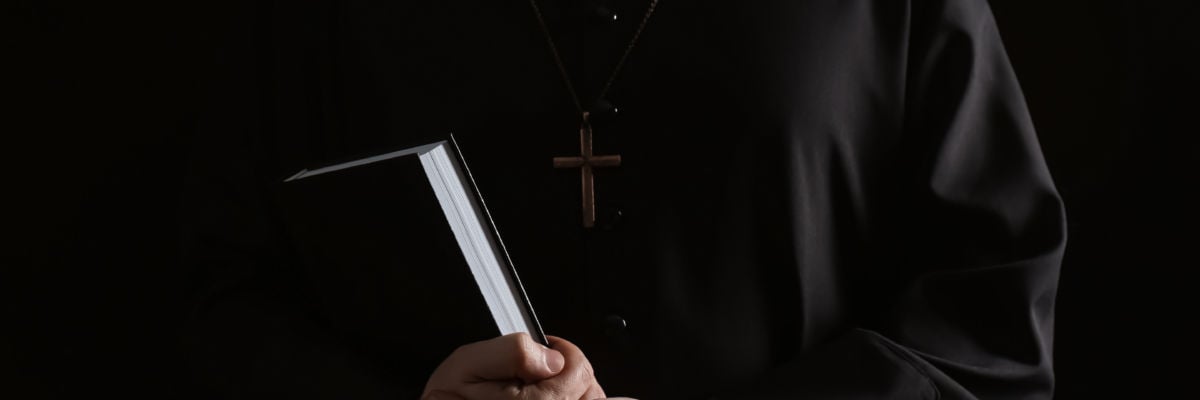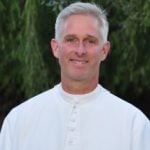
Fr. Sebastian Walshe offers compassionate guidance to a listener struggling with the abuse in the Catholic Church. Fr. Sebastian addresses the Church’s responsibility for past abuses, emphasizing the importance of transparency and accountability. He also acknowledges the human element of the Church, recognizing that it is composed of imperfect individuals, including clergy, and that the institution’s strength lies in its ability to endure despite human failings.
Transcript:
Hi, I grew up Catholic and left the church when I got really bad counsel from a priest and decided I was done with church. Then I found an evangelical church and I’ve been in there for 27 years or so.
But with all this abuse from the priest and the cover-up in the Catholic church about that, I just can’t even see how I could ever return to the Catholic church.
What do you have to say to me about that?
Well, thank you for calling and asking. That’s a perfectly legitimate and reasonable question.
The first thing I would say is the church is supposed to be held to a higher standard than civil society. While it is true that the abuse that’s happened in the Catholic church percentage-wise is not significantly different than is found in Protestant denominations or for that matter in public schools, it’s just it’s not reported on. One thing to recognize is that the abuse rate in all sectors of society, not just the Catholic church, is more or less that same thing that you find in the Catholic church. That’s the first thing to see, but the church should be held to a higher standard and therefore you have good reason for being upset, and especially about the way many bishops treated it. They were trying to save the reputation of the church or save their own reputation instead of care for the good of the faithful. So it really happened, and there’s lots of evidence now anyway that the abuse rate has plummeted significantly in the Catholic church and that bishops have been much better about not covering things up and they’ve been very transparent relative to what happened, say, 30 years ago or something like that.
That being said, let me answer your question.
Jesus Christ never promised that his priests would all be holy at all times. In fact, on the day of the Last Supper,
not just Judas Iscariot, 100% of the clergy abandoned our Lord on the night after they were ordained.
So our Lord just, you know, you have to recognize that Jesus never promised that the church would always have all their ministers be holy and saints at all times. In fact, to the contrary, he said, “Well, I’m picking a bunch of people who have defects and sinners.” And as St. Paul says, “Through your weakness, my power is shown.” In other words, the fact that Christ can work through defective human instruments and still keep his church going is itself kind of an evidence for the truth of the Catholic faith. There’s a famous line about, I don’t remember which,
oh, it might have been Belloq. Someone had gone to visit Rome and he was a new convert at the time. And so he was dissuaded. Someone said, “Don’t go visit. You might be dissatisfied or scandalized at the bad lives of the priests and clergy there.” And he went there and he came back and they said, “Well, are we scandalized?” He said, “No.” They said, “Well, weren’t the clergy bad?” He said, “Yes, they were, but that proved to me that there must be the true church of God. If this institution can continue for 2,000 years with all these sinners in it, there must be something divine behind it.”
So I will offer that to you to just recognize that the church has always had sinners. The church has always had priests that have failed. Most priests fail out of weakness when they do fail.
I go to confession frequently myself. I’m a priest and I go to confession to confess my sins because Jesus told me, not that I would cease sinning when I became a priest, but that I should trust in his mercy and I should strive for holiness. I try to strive for holiness. I think at the Abbey, at the conference I live with, we try to strive for holiness. Thanks be to God, there are no scandals in our community by the grace of God. But at the same time, we recognize that it’s not the individual holiness of this or that priest or bishop that’s a reason to be or to stay a Catholic. It’s the fact that it was founded by Christ and in his mercy,
it can use even sinners to accomplish his will.



